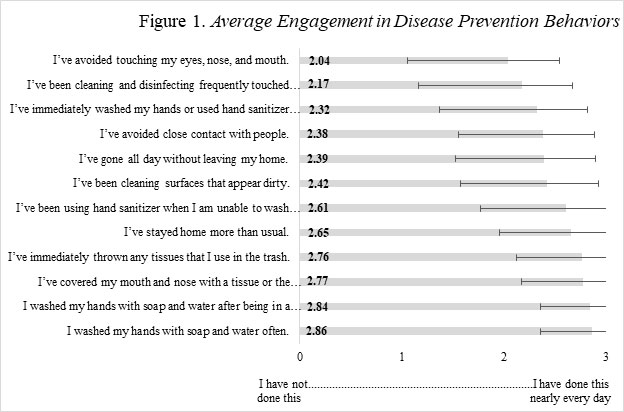A Clinical Psychology study in the Purdue School of Science at IUPUI shows the COVID-19 pandemic has a significant impact on the mental health of college students. Although this group remains at relatively low risk for contracting COVID-19, undergraduate students are experiencing higher levels of depression, anxiety and stress. The study also shows these students are more likely to follow the CDC guidelines for preventing the spread of COVID-19.
Mackenzie Shanahan, a doctoral candidate in Clinical Psychology led the study. She was teaching an undergraduate course during the start of the pandemic. IUPUI and other Indiana University campuses moved to remote teaching in March to help reduce the spread of the novel coronavirus during the spring semester. While working with her students online, she learned more about the daily challenges they were facing.
"Because of this, we wanted to examine undergraduate mental health and how undergraduates were coping with the COVID-19 pandemic," said Shanahan. Those challenges included the transition to online learning, missing major milestones like graduation and fears of finding a job because of the high unemployment rate."
The research team reached out to IUPUI's undergraduate students online and asked questions to gauge levels of depression, anxiety, and stress. The researchers also asked how the students were coping with the pandemic.
"Specifically, we asked them questions to determine how well they were following CDC guidelines for preventing the spread of COVID-19 and other specific questions to see what types of coping they were engaging in (e.g., substance use, using emotional support, etc.) to deal with the COVID-19 pandemic," said Shanahan.
Note: At the time of this study, the CDC was not recommending people wear face masks, so the researchers did not assess for that.
What the study found was surprising, both good and bad.
"Most shocking is that 48.9% of undergraduates met cutoff criteria for significant depression and 63.8% met cutoff criteria for significant anxiety. These findings suggest that a majority of students in this sample were experiencing clinically significant mental health symptoms," said Shanahan.
While undergraduates, broadly, aren't in the high-risk category for COVID-19, the study found the pandemic does has have a significant impact on their mental health. Some of the most common symptoms students reported included feelings of sadness, low energy, trouble sleeping and trouble focusing. Students also reported high levels of excessive worry, restlessness and high stress.
The results showed some positive findings, as well. The study found students were highly engaging in the CDC guidelines in preventing COVID-19. Plus, Shanahan says the students were actively participating in coping strategies.
"They were engaging in mostly adaptive coping strategies, like positive reframing and acceptance. These more adaptive types of coping were, in turn, related to less depression, anxiety, and stress."
In a time when there are a lot of unknowns, Shanahan suggests three things anyone can do daily to help improve mental health:
- Make taking care of your body a priority. This includes making sure that you are getting good sleep, eating healthy foods regularly, and exercising.
- While COVID-19 restrictions (such as social distancing) have made it more difficult to do things like we used to, try to find new ways to interact with others and engage in pleasurable activities. So, instead of staying indoors and isolating, make a plan to zoom with a friend or go for a hike in a local park.
- Take breaks from watching and reading the news, even on social media. If you notice that you cannot stop consuming media about the pandemic and are becoming too overwhelmed, give yourself a break.
Mackenzie Shanahan is the PI on this study; others also involved are: Ian Fischer, Sarah Rogers, and Kevin Rand, Ph.D. The study has been submitted to a peer review journal.
